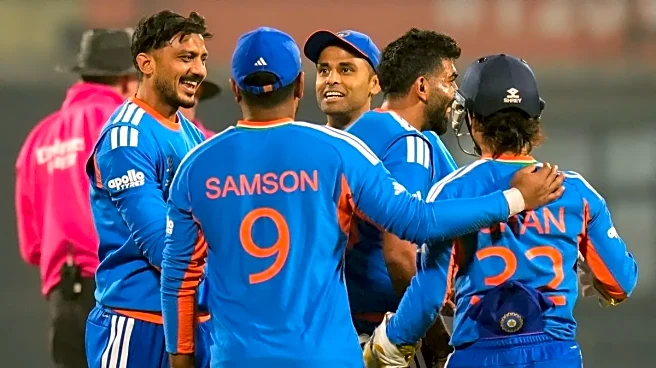Few
artists can claim to have become the very heartbeat of a land, but Zubeen Garg did exactly that. His voice travelled far—across the tea gardens of Assam, through college canteens, over radio waves, and eventually, into the neon glare of Bollywood. He wasn’t just a singer; he was an era in himself. His melodies carried Assam to the world, modernising its soundscape while never letting go of its folk soul. When news broke of his sudden death during a scuba dive in Singapore in September 2025, it silenced millions. The grief was instant, the curiosity inevitable—what was life like behind his songs?
From Assam’s Heartland to Mumbai’s Spotlight
Born in Assam, Zubeen’s talent never allowed him to stay in one corner of the map. He sang in Assamese, Bengali, Hindi, and several other languages, but music was only one string to his bow. He wrote lyrics, composed music, acted, and even directed films. His big Hindi breakthrough came in 2006 with Ya Ali from Gangster, a number that topped charts and won him the Best Playback Singer trophy at the Global Indian Film Awards (GIFA). But those who knew him well would argue that Bollywood was late to the party—Zubeen had been shaping music in the North-East long before the industry came calling. A tabla player and painter in his youth, he was always experimenting, forever layering his artistry.
The Crores Behind the Chorus
By the mid-2000s, Zubeen had already become a household name in Assam. But his fame didn’t just translate into applause—it built him a considerable fortune. Reports in outlets like Pratidin Time suggested his net worth in 2024 was close to $8 million (around ₹70 crore). His income didn’t come from one neat box; it flowed from record sales, royalties, concerts across continents, film work, brand endorsements, and even a few side ventures. Though his monthly earnings were never officially disclosed, insiders knew he was rarely idle. If there was a big music project on, chances were, Zubeen was involved.
A Home That Sang of Assam
Despite his global reach, Zubeen remained deeply rooted in his homeland. His Jorhat residence was more than a house—it was a reflection of who he was. Bamboo touches, Assamese artwork, and a studio where he’d often retreat late into the night made it part retreat, part creative den. The place mirrored his music—earthy yet contemporary, intimate yet expansive.
Cars, Bikes, and That Untamed Spirit
For someone who poured so much of himself into songs, Zubeen lived with equal gusto off stage. His garage told its own story: a Mercedes-Benz, a Range Rover Velar, a BMW X5, and a customised Isuzu SUV. And then there were the bikes—sleek machines he’d often take for spins around Guwahati or Jorhat. Friends say this sense of adventure spilled into everything he did, from motorbikes to scuba diving—the very passion that would, tragically, claim him.
Awards, Cinema, and Giving Back
Though Ya Ali remained his biggest Bollywood claim to fame, Zubeen’s awards shelf was far from empty. He won the National Film Award for Best Male Playback Singer in 2009 for Dilruba from Kismat. He tried his hand at directing and screenwriting too, refusing to be boxed into one role. And while he rarely spoke about it, he supported education and health initiatives in Assam, showing that his influence extended well beyond the stage.
Life with Garima
Zubeen wasn’t a solitary genius. He shared his life and work with Garima Saikia Garg, a singer and fashion designer. Together, they were more than husband and wife—they were creative collaborators. Their partnership gave rise to projects that celebrated Assamese identity, weaving culture and art into everything they touched. In September 2025, while swimming in Singapore, Zubeen experienced breathing difficulties that proved fatal. He was just 52. For fans, it was impossible to reconcile such restless energy with sudden silence. His passing left a void not just in Assamese music but in India’s cultural fabric.
The Legacy That Cannot Be Measured
Yes, Zubeen left behind crores, a home rich with tradition, and cars that turned heads. But those material things are mere footnotes. His true legacy lies in the songs that continue to echo from Assam’s tea gardens to global playlists. His voice remains stitched into the memory of an entire generation, and his music still inspires countless dreamers who want to sing their way out of small towns into the world. In the end, Zubeen Garg’s life was never about numbers or possessions—it was about a voice that belonged to the people. And because of that, he isn’t really gone. He is still here, every time someone hums a tune that feels like home.

/images/ppid_a911dc6a-image-175835524794818388.webp)

/images/ppid_59c68470-image-177092011588535423.webp)


/images/ppid_59c68470-image-177092006686738166.webp)
/images/ppid_59c68470-image-177092003360093891.webp)
/images/ppid_a911dc6a-image-177091964365144869.webp)
/images/ppid_a911dc6a-image-177091953657588289.webp)
/images/ppid_a911dc6a-image-177091957870770440.webp)

